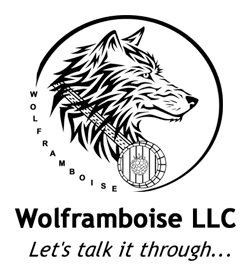

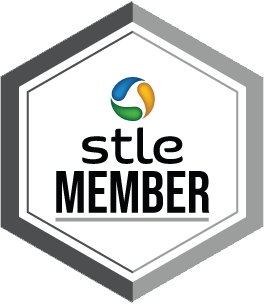
STLE Member Since 1998
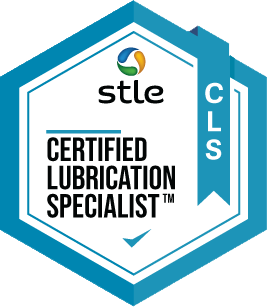
CLS Since 1999
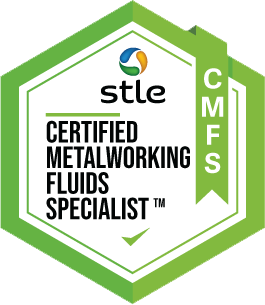
CMFS Since 2007
Last updated:
June 10, 2022
Copyright 2022
|
So what does Wolframboise mean? Wolframboise is a nonsensical portmanteau made up of the two words “wolfram” and “framboise”. Wolfram is the German word for the element tungsten, while framboise is the French word for raspberry. This portmanteau can also serve double duty as a pseudonymous owner's name, “Wolf Framboise” (just call me Wolf). It was also still available as a website and tradename, a prime concern in today's digital age. So literally translated, it means "heavy metal raspberry" (not to be confused with the Raspberries, an early 70's rock band). Pure tungsten is a tough, heavy, silvery-gray metal with a very high melting temperature. Its diverse uses include the glowing filament in incandescent light bulbs, radiation shielding, and armor-piercing projectiles. It can be made into a very hard carbide, which is very useful in cutting tools. It can also be made into a (di-)sulfide, which can serve as an extreme-pressure additive, especially in the nano- fullerene-like form. Raspberries are an example of an "aggregate fruit" which contain many smaller fruitlets (drupes). Each drupe contains a seed that can grow on its own, while still being an integral part of something much larger. Raspberries are small and used sparingly, but typically used to great effect to bring out the best in items, such as to flavor a cheesecake or liqueur. So what does the logo symbolize (i.e. where's the customary "drop of oil" in the logo)? The logo is a new spin on the legendary St. Bernard rescue dog of the Alps. The rescue dog has morphed into a lone rescue wolf, coming to the aid of those that need help. The traditional keg around the neck (normally brandy, for its medicinal purposes) has been replaced with Framboise (a raspberry liqueur). This is symbolized by the raspberry stamped into the end of the keg. So this logo ties together elements from the name, mission and vision. What does your company do? This light-hearted venture is designed to keep the owner's varied interests/skills active during early retirement (starting October, 2022), and to serve as a central clearinghouse for these various contacts and interests while exploring new paths (like grant writer for a not-for-profit). The name was kept purposefully vague, as there are many potential directions this company could take. The mission is to generate donations for a specific not-for-profit in the most effective manner possible. As the tagline says, let's talk it through. NOT looking for a full-time job, and trying very hard not to put limits on where this may lead. Generally, most companies already have the expertise/answers they need to troubleshoot problems in house, but may need someone to draw it out from different sources. Looking for projects (especially in the lubricants world) where a consultant can come in and act as a catalyst to drive change and progress forward. Where a lubricant-conversant staffer may be needed for a short-term project. Perhaps just to act as a sounding board to get a second opinion, or provide a reference for a special analysis. To teach basic lubricant skills. Lead a brainstorming session. Or whatever you may need. Let's talk it through. So this company aims to be as diverse and solid as tungsten, and with a goal to grow teamwork and improve existing products, just like raspberries. So what does "Wolframboise" have to do with lubricants? What does "Pepsi" have to do with soft drinks? For that matter, what does the study of lubricants have to do with any specific field? The word "tribology" was invented to try to capture the broad range of skills required: Engineering - Lubricants prolong the life of things mechanical - bearings, gears, engines and hydraulics. So smart engineers tend to consider the lubricant as part of their designs, not as an after-thought. Not to mention that clever engineers that are developing the specialized test instruments and rigs needed to develop better lubricants. Metallurgy - Study of the various alloys and properties of the metals used in construction of lubricated parts. Chemistry - Lubricants are made up of chemicals, and these many chemicals found in lubricants serve specific and sometimes multiple functions. Some chemists develop new additives and base stocks, while others formulate them in new ways to develop better lubricants. Biology - Modern medicine has brought about the need for new lubricants - lubricating contact lenses and artificial joints, for example. Microbiology has a very important role in developing and maintaining water-based lubricants and metalworking fluids. Sales/Marketing/Advertising - The best lubricant in the world is nothing without someone to promote and sell it. Education MBA - Depaul University (Chicago, IL) Concentration in Leadership and Change Management BS - Elmhurst College (Elmhurst, IL) Business administration AAS - Morton College (Cicero, IL) Associate in Pre-Forestry (including 2 years of chemistry) Certifications and Experience
|
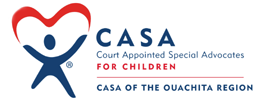
812 DeQueen St, Suite G
Mena, AR 71953